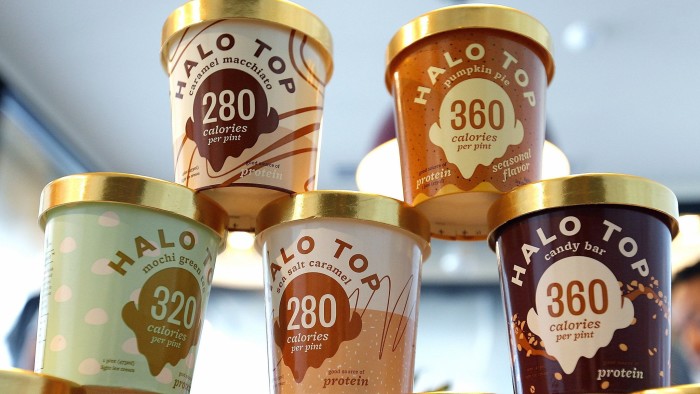The Craftory looks to back upstarts in fight against consumer giants

Simply sign up to the US & Canadian companies myFT Digest -- delivered directly to your inbox.
A plethora of upstart consumer brands, such as Dollar Shave Club razors and Halo-Top ice cream, have given big consumer companies a headache by eating into their business.
Now, an investment group launching this week aims to nurture more of what it calls these “disruptive challengers toppling lumbering giants” by pumping $300m of private capital into the growth and development of upstart consumer goods companies.
The Craftory is co-founded by Elio Leoni-Sceti, a brand specialist and former chief executive of Iglo, the frozen foods group. He has held senior roles at consumer group Reckitt Benckiser and was appointed chief executive of Coty, the cosmetics group, in 2015 but did not take up the role.
Co-founder Ernesto Schmitt is a digital entrepreneur who met Mr Leoni-Sceti when both men worked at EMI, the music group, a decade ago.
Mr Leoni-Sceti said that traditional big-brand names had lost relevance for a swath of often younger, digitally-savvy consumers: “The tide of history has turned. For these consumers it’s about honesty, provenance, quality and sustainable use of our planet’s resources,” he said.
The Craftory aims to invest in up to 10 challenger companies with annual revenues of more than $10m, in various consumer sectors including beauty, health, food, tea and coffee, alcohol and household products.
It already has a list of 100 potential investments, focused mainly in Europe and the US.
Mr Schmitt said: “The traditional fast-moving consumer goods model of engaging the consumer just doesn’t work any more for a certain type of consumer.”
The Craftory’s ambition was to codify a new operating model for challenger brands, involving owner-entrepreneurs running their businesses instead of “a revolving door management team”; replacing traditional advertising with storytelling and digital marketing; and scaling-up brands without entrepreneurs having to sell out on their promises in the process.
“You do not help a brand by going wide in distribution — getting on the Tesco shelf will probably be the death of a challenger brand,” said Mr Schmitt.
Many large consumer groups have in recent years set up their own venture capital funds as a way of spotting and investing in new trends, including food groups Mars, Kellogg’s, Danone, distiller Diageo and Unilever, the personal care and food company.
But The Craftory, whose logo is a wolf mother with laser-like eyes looking out for her investment cubs, sees itself as just as much of a challenger group as the companies in which it hopes to invest.
“Think of the endless number of investment funds, with readily replaceable individuals and offices. We are trying consciously to be different,” said Mr Schmitt.
Mr Leoni-Sceti said The Craftory’s focus was on amplifying sales rather than maximising profits and that, unlike a fund, there was no time horizon for its investments.
Asked how the investors — the capital has come from private wealth — would be repaid, Mr Leoni-Sceti said there were various possibilities. These included receiving dividends from companies that had become big to generate enough cash; founders wishing to sell their company; and the possibility that The Craftory might one day go public by floating on the stock exchange.
Comments